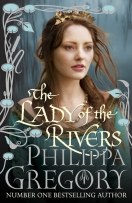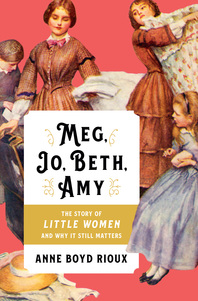
As someone who’s read most of the Gregory oeuvre and likes her approach to historical fiction too much to be completely unbiased, I have to say that I’d give The Lady of the Rivers three stars for the writing, as far as plot, character development, tension, dialogue, and detail of setting are concerned. Given that I find some of her earlier work five-star writing in all of those respects (Earthly Joys, the Wideacre series among them), three stars feels punishing. But I add an extra star because Gregory has brought to life, one might say resurrected, a fascinating woman whom history had almost managed to erase, one whose life can only be pieced together by the scantiest of historical documents, as far as I can tell. To pull Jaquetta back into the light–a woman almost as mythical, almost as powerful, almost as riveting as the great Melusine herself–is a real accomplishment in terms both fictional and historical. Emma Campion did much the same with Alice Perrers in The King’s Mistress, but Campion had (to my understanding) more abundant sources to work with. I presume Jaquetta got submerged by the more powerful male actors who surrounded her, and by the controversial public opinion centered on the prominent women in her life, principally Margaret of Anjou and Jaquetta’s most famous daughter, Elizabeth Woodville. Given her position, then, what a fantastic lens through which to tell the story of the Cousin’s War!
Unfortunately, here I have to join my voice to the lament of the other reviewers who observe that this story, which as history is practically bursting with tension and significance, never really makes that tension felt on the page. The problem for me is that Jaquetta most of all, but really all of the women, are just too “nice.” From the first pages, when the fierce and prophetic Joan of Arc–come on! a woman who, in 15th century France, had the guts and the temerity, as a peasant, to don armor, declare that God was speaking directly to her, crown a sovereign and lead his troops into battle, a girl so threatening that the English would have done anything to get rid of her, and did–when Joan gets toned down to a superstitious peasant girl and becomes a lesson that “men are threatened by women with power,” I felt apprehension for the way the rest of the story would go.
And so it went. Every gift that Jaquetta was given–beauty, birth, fortune, and yes a bit of the second sight as well–she refused to exploit to her own advantage. She coasted along, throughout most of the book, as a woman happily in love who didn’t want to risk her life or the safety of her family. Perhaps an eminently sensible sentiment for a woman in her position in dangerous times, yes, but it makes for duller reading than one wishes. I found myself longing for Jaquetta to stir up some mayhem, Beatrice of Wideacre-style. Her first husband promises to teach her all the secrets of alchemy, but Jaquetta properly shies away. She learns the use of powerful herbs from no less a person than the Witch of Eye, but uses them only (after taking a warning from the fate of Eleanor Cobham, of course) for the most innocuous herbal remedies (save for a love potion, it’s hinted at, near the very end–a set up for The White Queen.) I kept hoping that Jaquetta, especially as she matured, would become that promised woman of power, a dangerous woman, a threatening woman who could subvert the entire patriarchal order if she wished–a true descendant of Melusine. But Jaquetta becomes and remains a self-satisfied wife and mother of 14, complacent to the point that I wondered if Gregory has been pressured by those managing her broadening readership and bestselling success to make her female characters a little more tame, a little more “nice,” a little more appealing to the common denominator and a little more conformable to our own cultural mores. I imagine this conversation:
Gregory: But Jaquetta was a woman of consequence and real power. She has to really shake things up. Kick some butt, Joan of Arc-style.
Editor: No, our readers don’t like aggressive or annoying women, or loud women, or ugly women. Make her a nice matron. Make her pretty, give her a pack of kids, and make sure she has a great sex life with her husband. That’s what readers want.
Gregory: May I remind you Jaquetta was later tried for witchcraft? She was more like Beatrice of Wideacre than anyone else I’ve written, even Anne Boleyn.
Editor: Oh, no, no no! Nobody wants Beatrice of Wideacre! She was a murderess, a harlot, a whore! *shudder* Give us virgins and unicorns. Those sell very well to our demographic.
Gregory: You’ve never read the story of Melusine, have you?
Editor: No, and neither have most of your readers, so don’t prate on too much about her, please.
It is for Melusine–hands down my favorite mythical/legendary woman, whose story I admit I’ve studied in the French and Middle English manuscripts and have been permanently fascinated by–for resurrecting Jaquetta, and for the sheer interest of the historical setting that I boost this book up to four stars. I’ve just ordered The Kingmaker’s Daughter and I’m keeping my fingers crossed that Gregory is not going the way of Jean Plaidy, churning out wooden characters in a featureless landscape in which magic, women’s power, danger, and narrative suspense all but disappear.

